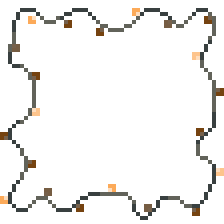Install Steam
login
|
language
简体中文 (Simplified Chinese)
繁體中文 (Traditional Chinese)
日本語 (Japanese)
한국어 (Korean)
ไทย (Thai)
Български (Bulgarian)
Čeština (Czech)
Dansk (Danish)
Deutsch (German)
Español - España (Spanish - Spain)
Español - Latinoamérica (Spanish - Latin America)
Ελληνικά (Greek)
Français (French)
Italiano (Italian)
Bahasa Indonesia (Indonesian)
Magyar (Hungarian)
Nederlands (Dutch)
Norsk (Norwegian)
Polski (Polish)
Português (Portuguese - Portugal)
Português - Brasil (Portuguese - Brazil)
Română (Romanian)
Русский (Russian)
Suomi (Finnish)
Svenska (Swedish)
Türkçe (Turkish)
Tiếng Việt (Vietnamese)
Українська (Ukrainian)
Report a translation problem


 Nova Scotia, Canada
Nova Scotia, Canada 























That tonight's gonna be a good night
That tonight's gonna be a good night
That tonight's gonna be a good, good night
A feeling
That tonight's gonna be a good night
That tonight's gonna be a good night
That tonight's gonna be a good, good night
A feeling (woo-hoo)
That tonight's gonna be a good night
That tonight's gonna be a good night
That tonight's gonna be a good, good night
A feeling (woo-hoo)
That tonight's gonna be a good night
That tonight's gonna be a good night
That tonight's gonna be a good, good night
Price had dreams bigger than our small town, though life kept him tethered close. While the rest of us ran wild in the fields, Price would sit on the porch, whittling sticks or sketching ideas in his worn-out notebook. “One day, I’ll have a job worth talking about,” he’d say with a sly grin.
But life doesn’t always make room for big dreams. When he was old enough to work, ole cousin Price took a job at the gypsum factory on the edge of town. It wasn’t glamorous—hard work in choking dust with long hours and little pay. Most folks only stayed long enough to move on to something better, but Price? He stuck it out.
Turns out, he was right. Price had a mind like a steel trap, quick to figure out how things worked—and how to make them work better. He started noticing inefficiencies in the way things were done, suggesting changes that made the factory safer and more productive. At first, no one paid attention. But when his ideas saved the company money, even the bosses started listening.
“Work’s work,” he told me one day, wiping gypsum dust off his brow. “But making it better for the folks who come after you? That’s what matters.”
Ole cousin Price never left that factory. He stayed until his knees gave out and they threw him a retirement party, complete with a plaque that read: To Ole Cousin Price, the man who made this place better for everyone.
Some might say he deserved more, but Price wouldn’t have agreed. “Ain’t about where you end up,” he’d say, “it’s about what you leave behind.”
And what ole cousin Price left behind was a legacy of grit, kindness, and a stubborn refusal to let life’s challenges define him.
⣿⣿⣿⣿⣿⣿⢸⣿⣿⠄⣿⣿⣸⣿⣿⣧⣿⣿
⣿⣿⣿⣿⣿⣿⠐⣿⡏⠄⣿⣿⣿⣿⣿⢸⣿⣿
⣿⣿⣿⣿⣿⣿⢀⣿⡇⢨⣿⣿⣿⣿⡿⣾⣿⣿
⣿⣿⣿⣿⣿⣿⢨⣿⠃⢸⣿⣿⣿⣿⡇⣿⣿⣿
⣿⣿⣿⣿⣿⡟⣼⣿⠄⣼⣿⣿⣿⣿⠃⣿⣿⣿
⣿⣿⣿⣿⣿⠇⣿⡟⠄⣿⣿⣿⣿⢿⠁⣿⣿⣿
⣿⣿⣿⣿⢟⣼⣿⠁⠄⢞⣿⣷⣟⠁⠄⣻⣿⣿
⣿⣿⡿⢃⣼⣿⡇⠄⠄⢾⣿⢋⠈⠄⠰⣿⣿⣿
⣿⣿⠃⠸⣿⣿⠁⠄⠈⣿⣿⡇⠈⠁⠄⢸⣿⣿
⣿⡇⠄⣤⡿⡟⠄⠄⢢⢾⢿⡇⠠⠄⠄⠄⢻⣿
⣿⠁⣠⣟⣿⡆⠄⠄⣿⣾⣆⡀⠄⠄⠄⠄⠈⣿
⣯⠄⣑⣛⣯⣇⠄⠄⣄⠵⡒⠄⠄⠄⠄⠄⠄⢹
⡇⠄⢯⣿⣿⣿⠄⢀⠩⡴⠖⠂⠄⠄⠄⠄⠄⢸
⣧⠄⢺⢿⢟⣿⣆⠄⢚⣭⠗⣞⠔⠄⠠⠄⠄⣼
⣿⣧⢴⣘⣿⣿⣿⣄⠹⣟⣿⣿⣴⡆⣀⣞⢀⣿
⣿⣿⣷⣟⢿⣿⣿⣿⣧⣜⡛⣷⣹⡽⢯⣥⣿⣿
⣿⣿⣿⣿⣿⣿⣽⣿⣿⣿⣷my balls is long